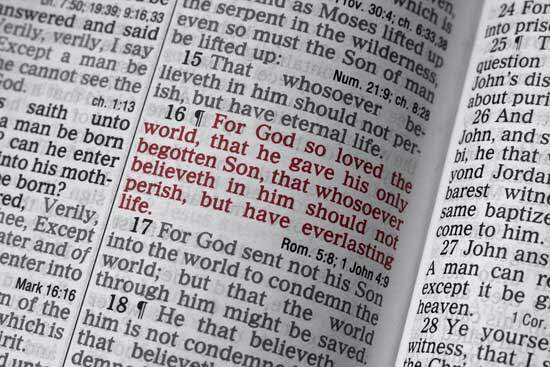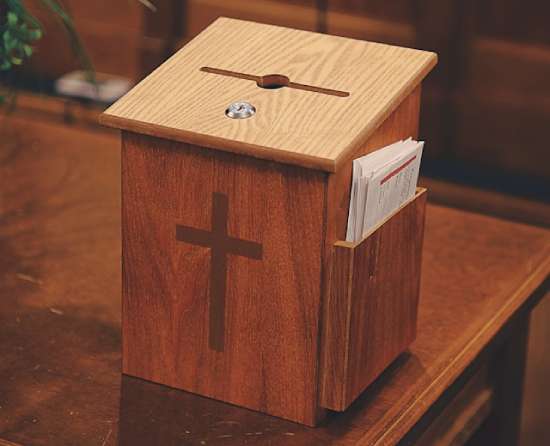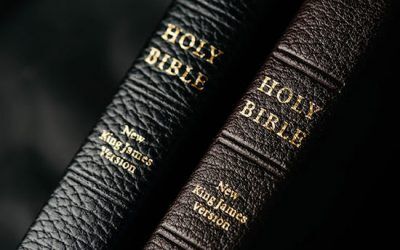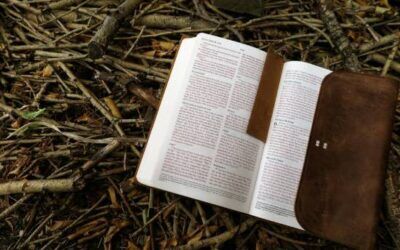Love for God and our fellow humans is the overriding principle of the Seventh-day Adventist faith. And we express that love in an overarching way through how we manage the things—material and immaterial—that God has entrusted to us.
This is often referred to as “stewardship,” and it is so essential to Adventist thought that one of the denomination’s core beliefs covers this topic.
On this page, you’ll learn everything you need to know about stewardship and why it’s important to Adventists.
Specifically, we’ll look at:
- What stewardship is
- The purpose of stewardship
- How our stewardship relates to God
- Where the concept comes from
- What kinds of things we are stewards over
- Tithes and offering as a form of stewardship
- Why Adventists believe stewardship is important today
Let’s start by looking at the official statement of the Seventh-day Adventist Church:
“We are God’s stewards, entrusted by Him with time and opportunities, abilities and possessions, and the blessings of the earth and its resources. We are responsible to Him for their proper use.
We acknowledge God’s ownership by faithful service to Him and our fellow human beings, and by returning tithe and giving offerings for the proclamation of His gospel and the support and growth of His church.
Stewardship is a privilege given to us by God for nurture in love and the victory over selfishness and covetousness. Stewards rejoice in the blessings that come to others as a result of their faithfulness.”
Now that we know the official church position on stewardship, we’ll explore what it actually means and why it’s important.
What is stewardship?
Stewardship is the work of taking care of something for someone else. Stewards are not the owners but the caretakers of what they have been entrusted with by the true owner.
According to the New Oxford American Dictionary, a steward is:
“A person employed to manage another’s property, especially a large house or estate.
“A person whose responsibility it is to take care of something.”
Being appointed as a steward is an honorable position that involves much responsibility. You wouldn’t give that job to someone you didn’t trust.
God wants us to take the same level of responsibility in our lives. It’s essential to our growth and maturity and a key part of our relationship with God. He leads and guides us while also giving us the privilege of being in charge of ourselves and the things in our lives.
The purpose of stewardship

Photo by wisconsinpictures on Unsplash
Stewardship is about expressing the same selfless love that God expresses to us.
When Jesus was here on the earth, someone asked Him about the most important commandment. He responded:
“You shall love the Lord your God with all your heart, with all your soul, with all your strength, and with all your mind, and your neighbor as yourself” (Luke 10:27, NKJV).
Love for God and love for others—these should be the foundational motivation for all that Christians do.
After all, we love God because of what He has done for us in Jesus (1 John 4:19).
And as we respond to God’s love for us, we are motivated to see how much—not how little—we can do for Him.
When we understand what we have been given in Jesus Christ, we want to respond by serving Him with all we have. We want to serve Him with our talents, time, money, effort—all of which are gifts from Him to begin with. In other words, we want to live out good stewardship.
All because our Lord Jesus demonstrated the highest possible act of love for us when He died on the cross, giving us a chance at redemption and reconciliation:
“For God so loved the world that He gave His only begotten Son, that whoever believes in Him should not perish but have everlasting life. For God did not send His Son into the world to condemn the world, but that the world through Him might be saved” (John 3:16–17, NKJV).
“And He Himself is the propitiation for our sins, and not for ours only but also for the whole world” (1 John 2:2, NKJV).
When someone gives you a heartfelt gift, it’s natural to treat that item with the utmost care. Not just because of the value of the gift but because of who gave it to you and why.
That’s why we demonstrate our love for God and others by how we manage the things He has entrusted us with.
Our goal is to be faithful stewards of God’s gifts to us.
How does our stewardship relate to God?

Photo by Helena Lopes on Pexels
In biblical stewardship, the true owner of everything is the Lord, our Creator. Stewardship connects to God because it reminds us that everything we have is actually His. We can express our gratitude to Him for all the good things He has done and give back a percentage of what He has given us.
God’s Word reveals this:
“The earth is the Lord’s, and everything in it, the world, and all who live in it” (Psalm 24:1, NKJV).
“For every beast of the forest is Mine, and the cattle on a thousand hills. I know all the birds of the mountains, and the wild beasts of the field are Mine.… For the world is Mine, and all its fullness” (Psalm 50:10–12, NKJV).
Everything we possess is ultimately a gift from God. After all, we didn’t create ourselves.
We didn’t create the earth, the ground, the minerals in the earth, the air, the plants, the trees, anything.
In whatever way we earn our living—be it with our hands, our backs, or our brains—ultimately, it all comes from God.
That’s why the Bible says He is the one in whom “we live and move and have our being” (Acts 17:28, NKJV).
Each one of the talents we’re born with comes from the Holy Spirit. And even our intellectual and physical talents come from God:
“Every good gift and every perfect gift is from above, and comes down from the Father of lights, with whom there is no variation or shadow of turning” (James 1:17, NKJV).
When God brought the Israelites into the promised land through the leadership of Moses, He promised to bless them abundantly with wealth. They would go on to own large herds of cattle, expand their families, and grow bountiful harvests.
But He warned them against cherishing the thought that “my power and the strength of my hands have produced this wealth for me” (Deuteronomy 8:18, NKJV).
Instead, they were to always “remember the Lord [our] God, for it is He who gives [us] the ability to produce wealth” (Deuteronomy 8:19, NKJV).
This is a principle we also can hold onto, especially if we’ve been blessed with material wealth.
And we see that principle in the New Testament just as we did in the Old Testament.
In his letters to Timothy, the apostle Paul instructed those with material wealth to not depend on their wealth but to depend on God and be “rich in good works, ready to give, willing to share” (1 Timothy 6:18, NKJV).
Part of being a good steward is being a cheerful giver to those who need it. We are to use the master’s money—God’s gift—to help those in need.
Where did the concept of stewardship come from?

Photo by J. Balla Photography on Unsplash
The idea of stewardship comes from the first week of creation.
For starters, we see God as the creator of the earth and all that is in it (Genesis 1–2).
Humans are part of that creation. They’re unique because they alone were made in the “image of God” (Genesis 1:27, NKJV).
But even so, they were still created beings and fully dependent upon God for their existence.
But being made in God’s image gave them a special status and responsibility in regard to the rest of the creation. Let’s look at two insights about this responsibility.
God’s role for humans
First, in the same verse that talked about creating humans, the Lord also expressed what their role would be:
“Then God said, ‘Let Us make man in Our image, according to Our likeness; let them have dominion over the fish of the sea, over the birds of the air, and over the cattle, over all the earth and over every creeping thing that creeps on the earth’” (Genesis 1: 26, NKJV; see also verse 28).
How fascinating that the first thing God says regarding humans is their responsibility toward the rest of His creation! They were to have “dominion,” to rule, to be responsible for the world in which He had put them. They were to be His faithful servants on this earth.
God’s home for Adam and Eve
Second, God specifically put Adam and Eve in a garden home called the Garden of Eden
“Then the Lord God took the man and put him in the garden of Eden to tend and keep it” (Genesis 2:15, NKJV; see also verse 8).
The Hebrew verb “to keep” comes from a root that can also mean “to guard, to look out for, to protect.” God gave them the responsibility to care for the place they lived in.
Of course, all this happened before the entrance of sin into the world.
But still, the principle remains. It’s perhaps even more important to remember now, after the damage of sin.
As the Psalmist said,
“You have made him to have dominion over the works of Your hands; You have put all things under his feet” (Psalm 8:6, NKJV).
As stewards, we care for and about creation, not just because it is our home but because we love God—our God who has entrusted this world to us.
How do we exercise stewardship? What are we stewards over in today’s life?
We can get into specifics, but the answer is vast. There are various forms of stewardship!
In fact, anything and everything that we have any sort of control or responsibility over—those are the things we are to care for.
Some examples of stewardship are:
- The environment
- Our health and bodies
- Our talents, skills, and abilities
- Our families, friends, and community
- Our possessions
- Other people and their possessions
- Our time
We’ll look at them in more detail:
The environment
This aspect of stewardship involves caring for the world around us with the choices available to us.
Do we do our part in keeping our surrounding area in order? Do we make an effort to think of the bigger picture? Do we use the tools or opportunities we have to help the earth as a whole?
From what we saw in Eden, part of human stewardship includes taking care of the planet (Genesis 2:8, 15).
So right from the start, humans were to be stewards of the earth. And this is something Adventists take seriously.
In 1995, the Seventh-day Adventist Church voted on this statement:
“The ecological crisis is rooted in humankind’s greed and refusal to practice good and faithful stewardship within the divine boundaries of creation…. Seventh-day Adventists advocate a simple, wholesome lifestyle, where people do not step on the treadmill of unbridled consumerism, goods-getting, and production of waste.
We call for respect of creation, restraint in the use of the world’s resources, reevaluation of one’s needs, and reaffirmation of the dignity of created life.”
Taking care of our earthly home is a central component of faithful stewardship.
Our health and bodies
The Bible tells us that our bodies are gifts from God—because He created us and redeemed us. We can use our bodies to give glory to God as well, and we can also be good stewards of them.
“Or do you not know that your body is the temple of the Holy Spirit who is in you, whom you have from God, and you are not your own? For you were bought at a price; therefore glorify God in your body and in your spirit, which are God’s” (1 Corinthians 6:19–20, NKJV).
Because we see our bodies as dwelling places for the Holy Spirit, Seventh-day Adventists teach the importance of health.
We have long advocated a healthy lifestyle. The teachings are based on the idea that our lives and our bodies are gifts from God, and we are responsible to Him for how we treat them.
Our talents, skills, and abilities
Each one of us has special spiritual gifts from the Holy Spirit that we can use in spreading the gospel and taking care of humanity.
If we’re naturally gifted in an area, it honors God to develop that skill and use it for good. The Bible even warns against doing nothing to nurture the gifts given to us (Matthew 25:14–30).
Our families, friends, and community
Do we treat those we encounter each day with love and respect, remembering that they are also beloved children of God? Do we willingly and cheerfully fulfill the roles we occupy?
Our possessions
Do we take care of the things we own? Are we thankful for the things we have rather than focusing on what we don’t have?
You won’t find any places in the Bible that condone hoarding away what we have or becoming overly focused on accumulating wealth.
Part of being a good steward of our possessions is knowing that we may also need to share with those who have need—especially because God is the true owner to begin with.
Other people and their possessions
Do we make sure our actions don’t negatively affect other people or the things they are stewards of? Do we treat others as beloved children of God, even if we don’t know them? Do we treat things we don’t own with the same care as if we did own them?
Our time
Do we make the most of the opportunities we’re given? Do we treat each day as a gift?
Because life is a gift, time is too.
Over and over in the Bible, we are admonished to be thoughtful and careful of what we do with the little time allotted to us.1
Any other thing that God has given us
Anything that comes into our care, whether permanently or temporarily, is a chance to demonstrate godly stewardship.
Tithes and offerings as a form of stewardship

Photo by Leiada Krozjhen on Unsplash
Because God is the true owner and giver of everything we have, Adventists believe the practice of returning tithe and giving offerings is a significant part of stewardship.
The word tithe simply means “a tenth.”
And we first encounter it in the Bible when Abraham paid a tithe to Melchizedek, “a priest of the Most High God” (Genesis 14:20; Hebrews 7:1– 6, NKJV).
This story shows us that the idea of paying a tenth of what we have earned existed before the Israelites, who also had a very elaborate system of tithes and offerings.
Jacob, Abraham’s grandson, also returned a tithe. He said to God, “Of all that You give me I will surely give a tenth to You” (Genesis 28:22, NKJV).
Here, the idea of tithing is powerfully expressed: Whatever Jacob amassed in terms of wealth ultimately came from God.
Again, this is an example of tithing that predated the Jewish nation.
During the time of the Israelites, tithes and offerings were a central part of their worship and an acknowledgment of God as their creator, the one who gave them “the ability to produce wealth” (Deuteronomy 8:19, NKJV).
In most cases, the tithe went to the priests and the Levites, who were not given land as an inheritance like the other tribes (Leviticus 18:23; Deuteronomy 12:12).
The Seventh-day Adventist Church also follows this practice of using tithe money exclusively for the ministry.
Offerings, on the other hand, are voluntary gifts to God in response to His blessings. Unlike tithes, offerings don’t have to be a given percentage or amount.
Rather, they can be any amount that an individual may choose to give to a variety of causes specified by the church. Things like mission projects, different ministries, or local schools.
Why do Adventists believe stewardship is important?
Stewardship is important to Adventists for three reasons:
- The Bible teaches it
- It discourages greed and selfishness
- It allows us to help others
A little more detail on each one:
1. The Bible teaches it
All through the Bible, God teaches us about stewardship. From the creation of humanity in Genesis 1 all the way to Jesus’ parables in the New Testament (Matthew 25:31–46; Luke 19:12–27), we can see our responsibility to take care of the world around us.
2. It discourages greed and selfishness
Because of our fallen human nature, we have a natural tendency toward greed and selfishness. Acknowledging that God owns everything can help protect us from ourselves and from that inherent selfishness.
3. It allows us to help others

Photo by Matt Collamer on Unsplash
Helping and blessing those who are less fortunate is a theme throughout the Bible.2
Here, faithful stewardship can make such a difference, especially with free will offerings—donations of any amount given out of gratitude to God.
As Adventist scholar Angel Rodriguez wrote:
“We could say that what motivates Christians to give offerings is their love for God, a selfless love whose focus of attention is God and fellow human beings. Giving should not be an attempt to obtain or gain God’s sympathy, love, or recognition. It is only through the sacrificial offering of Christ that we are accepted by God. Our giving is preceded by God’s saving grace and should always be a response of gratitude.”3
We all have been given gifts by God, and we can use them as an expression of our love to Him and others.
Perhaps the best summary of the principle behind stewardship is in these words of Jesus: “Freely you have received, freely give” (Matthew 10:8, NKJV).
If you want to know more about being a good steward of the unique talents God has given you, click the button below!
Choose an Online Bible Study
Want to keep learning? Find out more about Jesus, humanity, the plan of salvation, and how God loves you enough to sacrifice everything, just to give you a chance to choose Him.
Sometimes it can be hard to know where to start, that’s why we offer free, user-friendly, online Bible study options you can do anytime, anywhere, and at your own pace.
This online Bible school will take you through the major themes of Scripture, breaking down the Bible’s complex concepts into bite-sized pieces, which can lead you toward the answers of life’s more challenging questions.
- Psalm 90:12; Ecclesiastes 9:10; Ephesians 5:16; Romans 3:11 [↵]
- Leviticus 19:9–10, 15; Proverbs 14:21; 29:7; Matthew 25:40; 1 John 3:17–18 [↵]
- Rodriguez, Angel, Stewardship Roots: Toward a Theology of Stewardship, Tithe, and Offerings, (General Conference of Seventh-day Adventists Stewardship Ministries, 1994), p. 76. [↵]
More Answers
Adventist Beliefs
Learn how the 28 Fundamental Beliefs summarize and describe Seventh-day Adventism. They are not a checklist of requirements; instead they show how Adventists interpret and apply Scripture.
What Do Adventists Believe About the Authority of the Bible?
Learn how one really old book (the Bible) is the sole foundation for all Seventh-day Adventist beliefs.
Is the Soul Immortal? Exploring What Adventists Believe
Based on the way the Bible describes humanity in comparison to God and angels, Seventh-day Adventists believe souls are not something you have, but something you are.
What Do Adventists Believe About the Mark of the Beast and 666?
It’s a popular topic, especially during tumultuous times. When everything around you feels chaotic, it’s easy to wonder about the end of the world, and topics like the mark of the beast, as mentioned in Revelation 13, can stir up uneasiness.
What Do Adventists Believe About the Atonement?
If you’ve spent much time in the Bible books of Leviticus or Numbers, you might’ve noticed the word atonement.
Do Seventh-day Adventists Believe Only They Will Go to Heaven?
No, Adventists definitely don’t believe they’re the only ones that will go to heaven. As a matter of fact, we don’t believe admittance into heaven is ever based on which church or denomination we belong to. People all over the world from different Christian denominations, religions, and walks of life will be welcomed by Jesus.
How Adventists Developed the Sanctuary Doctrine and What It Means
The sanctuary was a building at the center of ancient Israelite society that gives us a small picture of the original sanctuary, God’s throne room in heaven (Hebrews 8:1-2).
What Do Adventists Believe About Faith and Works?
Adventists believe we are saved by faith, which is the belief and trust we have in Jesus to save us from our sins. Jesus, then, enables us to live in harmony with God’s commandments and serve others with love—sometimes referred to as “works.”
Do Seventh-day Adventists Believe in Hell?
Seventh-day Adventists believe that any human being who accepts God’s free gift of salvation through Jesus will be given eternal life. But what about the eternal fate of those who choose not to accept Jesus?
Sola Scriptura—What It Means and Why It Matters
Sola scriptura is a term that originated during the Protestant Reformation. It represents the way many Christians view the Bible and its authority. While the idea is simple enough, there is so much more to sola scriptura than its basic definition.
Do Seventh-day Adventists Believe in the Secret Rapture
The secret rapture belief asserts that the followers of Jesus will be suddenly and stealthily “raptured” from earth and taken to heaven. Then, any people left on earth will face a period of great difficulty—before Christ’s second coming actually happens.
Why do Adventists Emphasize Religious Liberty?
Adventists see religious liberty as an essential human right. After all, God endowed humanity with freedom of choice from the very beginning. So we believe it’s best for governments to also support their citizens’ rights to worship based on their convictions.
What Seventh-day Adventists Believe About Growing in Christ
Christian growth is the experience of allowing Jesus Christ to work in our lives through the Holy Spirit and restore in us the image we were designed for—God’s image of selfless, other-centered love.
What Do Seventh-day Adventists Believe about the New Earth?
Seventh-day Adventist, like other Christians, believe that after the second coming of Christ, God will cleanse our earth by fire and then restore it back to Eden-like perfection.
What Adventists Believe About the Millennium and the End of Sin
As most Christians, Seventh-day Adventists hope for the time when sin and evil will no longer exist. The Bible teaches that God will bring an end to sin after a thousand-year period of time called the millennium.
What Are Seventh-day Adventists Beliefs on Death and the Resurrection?
The thought of dying can seem scary. And the idea of being resurrected—or coming back to life—can seem a little uncomfortable.
What Do Seventh-day Adventists Believe about The Second Coming of Christ?
The second coming of Jesus Christ is an event the Bible prophesies will occur at the end of this world’s history. It’s called His second coming to distinguish it from His first, when Jesus was born to Mary and lived as a human before dying on the Cross.
What Adventists Believe About Jesus’ Ministry in the Heavenly Sanctuary
The ancient Israelite sanctuary had a daily service and a yearly service. Jesus’ death on the Cross and His ministry in the heavenly sanctuary reflect these services.
What do Seventh-day Adventists Believe about Marriage and Family?
The Seventh-day Adventist Church believes God established marriage and the family unit to be blessings to humanity. They make up a relational structure that can reflect the multifaceted nature of God’s love.
What Seventh-day Adventists Believe about Christian Behavior
The patterns of actions and words that make up behavior are central to any type of belief system because they flow from those beliefs. Seventh-day Adventists look to the Bible, with Jesus as the perfect example, for guidance on shaping our daily behavior.
What do Seventh-day Adventists Believe about the Sabbath?
Seventh-day Adventists believe that the biblical Sabbath is a beautiful gift of rest that God gave to us at Creation and that remains valid to this day. Falling on the seventh day of the week—Saturday—it connects us to God in a special way and offers us a weekly opportunity to be physically, mentally, and spiritually refreshed.
What Do Adventists Believe About the Law of God?
Seventh-day Adventists believe that God’s law reflects His character of love (1 John 4:8; Romans 13:10). It is perfectly summarized in the Ten Commandments given to Moses on Mount Sinai, showing us the practical application of loving God and loving other people.
What Do Seventh-day Adventists Believe About the Gift of Prophecy?
Adventists believe the gift of prophecy is a spiritual gift that the Holy Spirit gives to specific individuals to help the church carry out Jesus’ Great Commission (Matthew 28:16–20). Prophecy helps strengthen, encourage, and comfort His people (1 Corinthians 14:3).
What Seventh-day Adventists Believe About Spiritual Gifts in the Bible
Seventh-day Adventists believe that spiritual gifts are talents that the Holy Spirit gives to believers and followers of Jesus Christ. These gifts are different but complementary, and they often equip followers of Christ with the ability to spread the good news about Jesus and encourage its members.
What do Seventh-day Adventists Believe about the Lord’s Supper (Communion)?
Like many Protestant Christians, Seventh-day Adventists believe in the practice commonly called the Lord’s Supper or Holy Communion. They drink grape juice and eat unleavened bread in obedience to Jesus’ direct instructions to do it in remembrance of Him (1 Corinthians 11:24–25).
What do Seventh-day Adventists Believe about Baptism?
Like many Protestant Christians worldwide and throughout history, the Seventh-day Adventist Church believes in baptism, a ceremony in which individuals go under water to publicly demonstrate dying to an old life and beginning a new life in Christ. We baptize people by immersion, as taught and exemplified in the Bible.
What Do Seventh-day Adventists Believe about Unity in Christ?
Seventh-day Adventists believe in biblical unity—the idea of believers in Jesus being united by the truth of the Bible and the common goal of representing God and His love to the world.
What do Seventh-day Adventists Believe about the Remnant and its Mission?
The “remnant” are a group of faithful believers that have existed throughout history and proclaimed God’s truth, love, and plan to save humanity. They “remain” with God even amid persecution and also when it seems everyone else has rebelled against God or compromised their beliefs.
What do Seventh-day Adventists Believe about the Church?
Seventh-day Adventists believe that the idea of the church is an important biblical concept.
Didn’t find your answer? Ask us!
We understand your concern of having questions but not knowing who to ask—we’ve felt it ourselves. When you’re ready to learn more about Adventists, send us a question! We know a thing or two about Adventists.






























